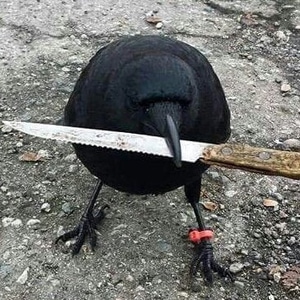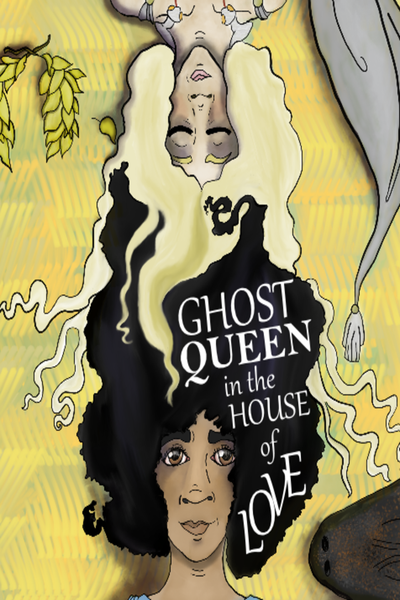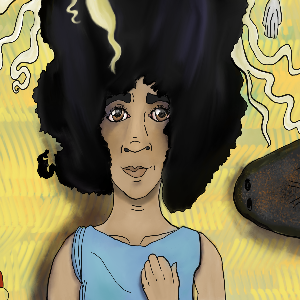Hair mussed, I make my way back in the night without trouble. And when I crawl into bed, I doze easily. No dreams, thank Olympus.
I wake again, and the pale morning sun drifts through the half-parted curtains, illuminating the dust. In my haste, I’d left the window open, so the room is cool.
On my back, I close my eyes again and listen. Outside, birds sing in high peals, and the underhounds occasionally bark. As my fingers trace the soft velvet sheets, I listen outside my door for any footsteps. Nothing.
I deeply inhale, curl and uncurl my toes, and open my eyes. The chandelier above, with crystals dangling from it, glitters.
Sitting up, I rub my face and sigh against my palm. Predictably, I stained my stola with mud, dirt, and grass. I run a hand through my tangled hair and pad across the space to the washroom.
Slipping off my clothes, I spend more time than intended in the bath, the fragrance of sweet apples drifting through the room; it reminds me of home, the golden apple tree outside the study. I slide down, up to my chin in warm water. Watch the steam curl upward and almost fall asleep again.
A morning of moments, one by one, strung together like pearls. The bath formula froths, and all colors at once dance in the bubbles.
When I finish, I reluctantly lift myself out of the tub with both hands. Crossing into the bedroom, I find a yellow stola with sleeves that reveal the arms between jeweled clasps.
Once dressed, I venture downstairs, and more golden light and dust drift into the main hall. The iron window above the hall curves upward to a point. I admire the winding paths in the architecture, what looks like spherical lattices in the deep red-brown walls; when I first arrived at the estate, the interior seemed sharper, colder.
My heart beats fast. I want music, a good feast. Night and day from my feelings before. My first night here, I was reminded of a fretful campfire story. Now, though the place is no less secluded and dark, there's no persistent dread.
Given my quest, I can't ever be fully at ease, since time is ticking down, but I'm not as afraid. After all, though her words can be dry or blunt, Melinoë hasn’t given me a reason to worry. Except for . . .
Those two men in the west wing. One of them Adonis.
Softly, I push the door, which is already cracked open. It heaves a groan. My eyes adjust to the light, and all is the same, albeit with less gloom.
Or perhaps it’d never been so sad as I thought. Robins dot the ground steps, sporting their orange bellies proudly and keeping some distance from the alligators napping under the walnut and crab apple trees.
Following the barks, I saunter with bare feet down the creaky steps, cool against my skin. Unlike before, I appreciate the curving, leafy patterns swirling on the front door, fainting glinting gold.
As the wind rakes through my hair, the cool caress of the spring air inviting, I'm being watched. Below me, Melinoë walks across the verdant yard and catches my eye.
She looks about the same, but instead of her longer dress and cloak, she wears a simple orange chiton that reaches her ankles and exposes her arms up to her slender shoulders.
An underhound pads by her side. This dog is a foot shorter than the rest, its body thick and wrinkled, hair dark and shiny.
Melinoë gestures to the hound. “Come, Penelope.” She approaches the steps. With her bright dress, she looks part-fire, the queen of an old, lonely castle. I realize I'm staring.
“Good afternoon,” Melinoë says, and I pause. Had I truly slept that long? Apparently so. In fairness, it was a good and restful sleep.
“Good afternoon,” I say, playing it off, “Penelope’s a good name.”
The underhound stares at me with her burning red eyes and wags her tail. Her tongue lolls out the corner of her mouth, and a thin string of saliva tapers to the grass like a spider on its web.
Melinoë bows her head in acknowledgment. “Thank you. Albeit, it’s not entirely original.”
“It’s pretty.” I keep my arms at my sides.
“It means ‘duck’, and Penelope here has an odd walk. Her legs are a little shorter than the others’. It’s an affectionate name, insomuch as . . .”
“Insomuch as you show affection,” I finish.
A curt nod. “Indeed.”
“Oh,” I say, “I thought she was the weaver. Penelope, that is.”
“Well.” Melinoë raises both brows. “I must admit, weaving for two decades to keep your suitors away is a rather agreeable mood.”
“It certainly worked.” A light, melodic clink to our left. I look at one of the wind chimes. “Did you make the wind chimes yourself?”
“Yes, from bones I found just under the steps. I supposed it’d honor whatever died to be used to make songs, though I must admit, I wasn’t as artful as others might’ve been. But it does what I wanted it to do, nonetheless.” Melinoë walks past me, and Penelope follows.
So do I, the interior floor much cooler than the steps outside. As I come inside, I go to close the door.
“It can be kept open,” Melinoë tells me without stopping to look. “To let in the breeze.”
Dropping my hand from the wood, I head through the right hallway and follow Melinoë and Penelope through the first door to the left.
The study is dark, except for a lively fire in front of a crimson rug and two clawed, plush armchairs. On the burgundy wallpaper, patterns of golden lilies curve up toward the low, octagonal vaulted ceiling. Bookshelves line the right wall, furled upward at the top like they have small horns.
Despite the shadows, the place is cozy. In the left armchair, Melinoë slides on the cushion in such a way it's like she flows easily into the velvet. Penelope settles by Melinoë’s bare feet, her broad head nestled on top of both her front paws.
Pausing by the open door, I cross the space and sit in the remaining armchair with less hesitation than before. I shouldn’t hesitate. Father wouldn’t; Grandmother wouldn’t.
The hearth before us pops and snaps. Without ornamentations, no statues or paintings or buck heads, I'm drawn to the fire first, and Melinoë, who speaks first.
“I noticed you left the estate last night.”
I meet her eyes. “I did.” Best to seem honest.
“It isn’t my business why, though I did notice some grass stains on the rug in the main hall.” I could easily jump a long distance without pain, but it was harder to climb.
“My apologies,” I murmur.
Melinoë’s long, silver eyelashes are steady over her gaze. “It’s no trouble. Easily cleaned. I supposed your departure was for a breath of fresh night air.” She pauses. “Or a dalliance.”
Ah, there it is. I tense and straighten.
“Perhaps.” A little tersely, I ask, “Did you come and watch?” It isn’t any of her business how I find comfort.
Melinoë sets her hands primly in her lap, a delicate gesture. “No. I didn’t follow you. I don’t know what you did. I don’t spy on you every second, if that’s what you think.” Every second. Reassuring.
“How did you know?”
“I only saw the stains. And the hounds let me know. I can feel when their demeanors change.” I note that. “Sometimes, I tell them what to do, but this time, I didn’t.” And I see in Melinoë’s eyes a withdrawal, a flicker of judgment. And I can’t help myself, as much as I don’t want to seem defiant.
“Don’t look at me like that.” I try to keep her voice as even as possible.
Melinoë replies, “I’m not looking at you like anything.”
“Don’t lie to me.” Those are the words I have no right to say.
“I haven’t lied to you,” Melinoë says coolly.
I don’t relent. “Yes, you have. You are.”
Melinoë meets my gaze carefully. “About what?”
In the firelight, Melinoë looked more intense. Her dress looked as if it flickered with flames of its own. “You look at me as lesser than you because, in your eyes,” Hedone said, taking a brief pause, “I’m a trollop.”
Melinoë looks into the fire, her eyes like opals in its brilliant light. “I don’t judge you for that.”
What a way to say it. I laugh. “Forgive me if I’m not reassured.”
The other goddess leans back. “I didn’t mean it to quite sound like that.”
Is she flustered? She keeps her gaze averted. Hard to tell.
“Then what do you judge me for?” I press. “Is it that I’m one of those love goddesses? Love adjacent, as it were.”
Melinoë replies, “You have your talents and . . . knowledge, and I have mine. It so happens they don’t overlap.”
“Is that so?” I ask.
“There’s nothing wrong with it. If I tried to be as adept at war as Ares or Athena, I would utterly fail.”
Though Melinoë has a demeanor far more serious than she, I feel she's incredibly sheltered and inexperienced. With nothing but the gloom of the lonely rivers and banks, most of her knowledge comes from books and guided mentorship, and little else. By coming across as stern or even appearing intimidating, she lessens the likelihood anyone will question her knowledge, the words of a mysterious, erudite witch.
I could’ve said all this.
Instead, I ask, “You think I don’t read for pleasure or know history? What do you think I did on that island”—my home—“for thousands of years?”
Melinoë squares her shoulders. “I suppose I never thought of it. I haven’t traveled much, so I don’t know what your home was like. What resources it provided.”
“It doesn’t matter either way. Even if I didn’t know of history or worldly things, I don’t see why it would make me lesser.”
And Melinoë draws her gaze back to me. “I spent most of my life in my own palace, as grim as it could be. I have no room to judge you. I’m sorry.”
That's surprising. Out of everything, I hadn’t expected an apology. In fact, I can’t remember the last time someone said they were sorry to me, and I don’t know how to respond. Normally, admitting a mistake is evidence of weakness.
In the end, I bow my head, and we let it be.
The hearth writhes and burns. Reaching forward, Melinoë raises her open hand toward the fire. Flames pulse, and I blink at how the white light of the fire draws into the center of the hearth, the flames pointing inward instead of outward. The room grows even warmer, right down to my bones, electrifying.
Away from the logs, the fire begins to pour out of the hearth. Only some of it, not like flames, but like mist, thinner than black smoke. It dances with the gentle sway of Melinoë’s hand, and a shuddering wisp of light forms before us both. It hovers between our chairs and the fire, which has returned to normal.
Melinoë says, “If you ever need help finding your way through the swamp, this may help. It’s no golden thread, but it is better than nothing.”
Perhaps this is the witch-goddess’ true apology. Not in well-worn words but in a simple action.
Hedone appreciated the consideration, but she didn’t want to rely on Melinoë being there to conjure something if she wanted to go out. “I found my way back.” And I found you, didn’t I?
“Yes, but in case you ever have trouble.”
Hedone’s eyes flickered over Melinoë’s face, but as always, the witch-goddess was imperceptible. Her eyes lowered to her sleeveless arms, each with those faintly glowing blue symbols. Though Melinoë set her arms down, Hedone still saw the blue creeping along the velvet armrests.
“I’ve wanted to know . . . what are the symbols on your arms?”
“They’re magical runes,” Melinoë explains. "Sigils."
I beam. “I guessed as much. They help you do spells?”
“Some, yes.”
“What do they mean?”
“That might take a while.”
“I have time, for now.” My grin widens.
After a pause, Melinoë unfurls her right arm and sets two fingers on her wrist. The glowing symbol there looks vaguely like a cursive Y with a circle between the two points.
Though I lean forward, I try not to get too close; though I've had my persona, my mask, I don’t want to make Melinoë uncomfortable. “What does it mean?”
“The Styx,” she says plainly.
“Ah. What about the one on your other wrist?” It looks similar, except the circle is a tear.
“Cocytus, the river of wailing,” she replies, “where I was born. We are all marked by our homes.” Her low tone, alongside the crackling fire, is oddly calming.
“That’s the river my mother was ordered by Aphrodite to take black water from. A dragon almost killed her.” I take a deep breath. “But Zeus saved her.”
“That’s right. All the rivers lead to a great marsh, where the palace sits. The Styx is the most well-known because the gods swore all their oaths on the Styx, even loyalty to the king. Because the goddess of rivers is ever-loyal to him.”
As we lounge by the fire, Melinoë shows me more: an apple with an asterisk at its center (Persephone); a straighter version of the Styx symbol (Hades); the signs for salt, sulfur, and night. All manner of alchemical elements line her arms in a story, a tapestry, and I can’t help but be enamored by their strange beauty.
“Did it hurt?” I straighten when I realize I'm leaning in close. I wonder what each rune feels like on Melinoë’s skin. They look simultaneously raised but engraved in her flesh, but I don’t dare touch.
Melinoë looks up. “What?” For an instant, her rasp is less harsh, sounds young.
“Did it hurt when you got these? They’re like tattoos.”
“It didn’t hurt. It was like a . . . prickle, goosebumps. I suppose I don’t know much about pain, though. The closest perhaps is menstruation.”
I say, “That is certainly painful.”
Melinoë replies, “Indeed. Perhaps I have a very Stoic look at things. If I can control it, it doesn’t hurt much. If I cannot, why should I let it hurt me?”
I laugh. “The Stoics wouldn’t be a fan of mine. You haven’t done your gathering today, have you?”
Another pause, and I take some pleasure in knowing I must’ve caught her by surprise.
“No, why?”
I reply, “I want to help.”
“All right.” Melinoë stands. “Then, let’s go to the garden.”
“Garden?” I raise myself. “I still don’t understand how you have these flowers and trees. I thought the swamp wouldn’t allow for deep roots.”
“Come and see,” Melinoë says, so I follow her out of the study. When the hound rests on the floor, Melinoë clicks her tongue, which raises the dog's long ears. “Come, little duck.” Penelope trots behind us.











Comments (0)
See all